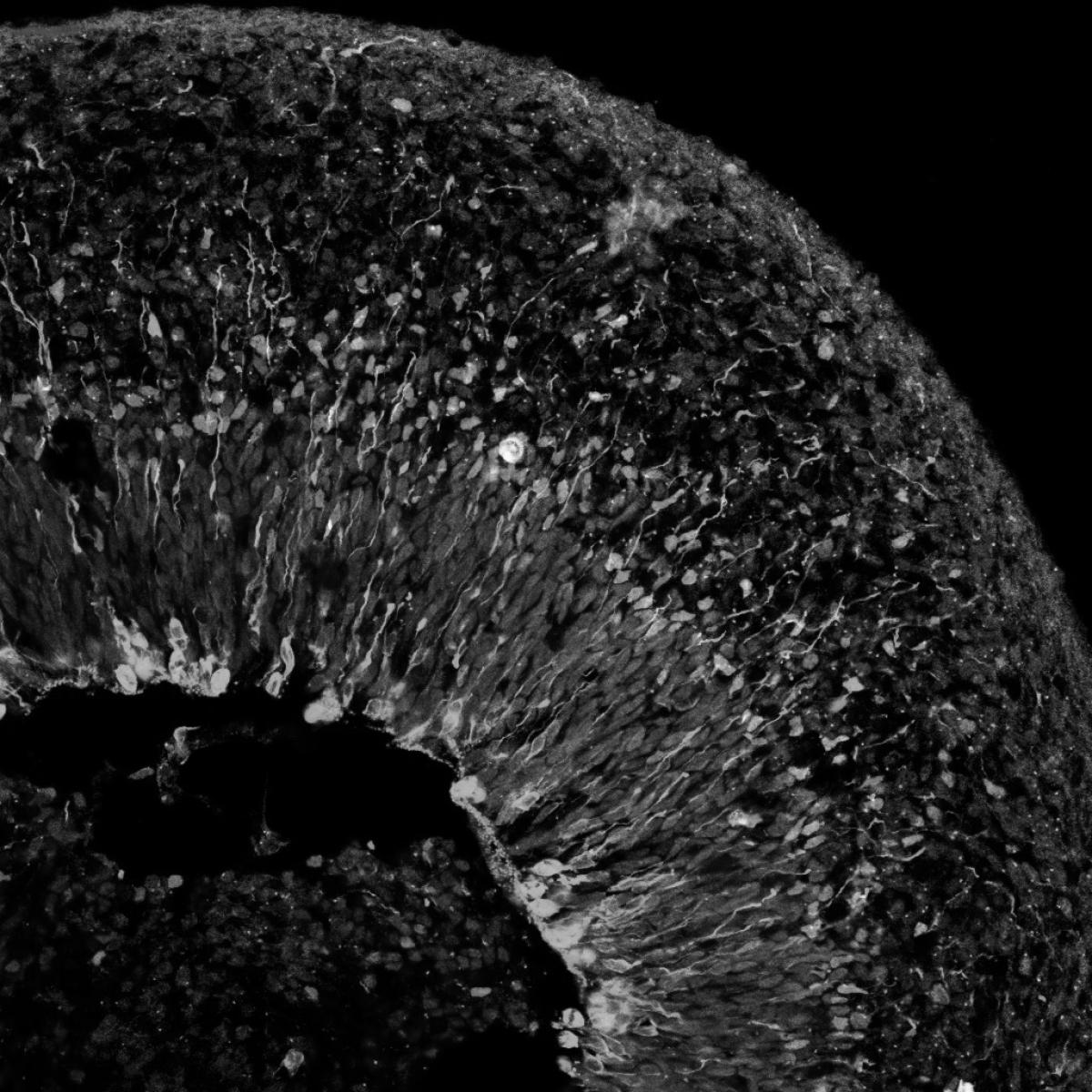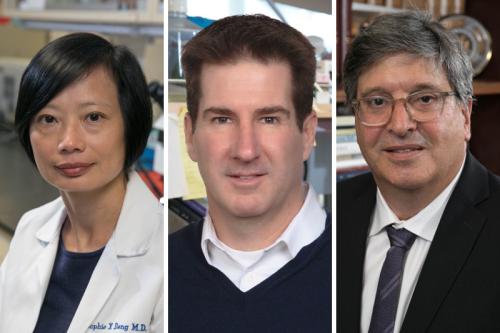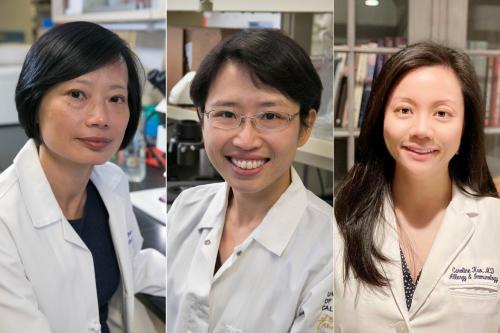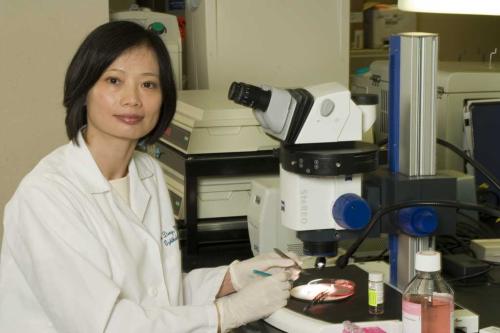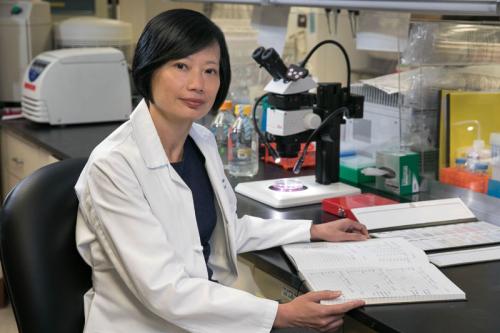
Sophie X. Deng, M.D., Ph.D.
- Professor, Ophthalmology
- Co-Chief, Cornea and Uveitis Division, UCLA Stein Eye Institute
- Director, Cornea Biology Laboratory
- Vice Chair, Ophthalmology, Justice, Equity, Diversity and Inclusion

Sophie X. Deng, M.D., Ph.D., is dedicated to improving treatment options for patients with corneal diseases, which affect the outermost layer of the eye. The ultimate goal of her research is to eliminate the need for direct transplantation of corneal tissue by developing stem cell-based therapies that regenerate the cornea and restore vision.
Deng is a board-certified specialist in corneal and external ocular diseases and cataracts. Her research focuses on corneal epithelial stem cell regulation, deficiency and regeneration. Diseases of the cornea, which include limbal stem cell deficiency, stromal opacity and endothelial dysfunction, are a leading cause of blindness worldwide, and though they can be treated through transplantation of a donated cornea, patients run the risk of their immune system rejecting the transplanted tissue. Furthermore, while there is no waiting list for corneal transplants in the United States, corneal blindness worldwide far outstrips the availability of corneal tissue for transplant.
Deng seeks to develop safer and more accessible treatment options for patients with corneal diseases that use a patient’s own stem cells. She is currently leading a phase 1 clinical trial investigating the safety, feasibility and efficacy of autologous limbal stem cell transplants for the treatment of limbal stem cell deficiency. Individuals affected by this condition lack a sufficient number of limbal stem cells, often due to genetic abnormalities or injuries, leading to symptoms such as pain, corneal scarring and blindness. Deng’s experimental therapy involves extracting a small number of limbal stem cells from a patient’s eye, multiplying them in the lab, and then transplanting them back into the eye, where they could regenerate the cornea and restore vision.
Deng has also developed lines of corneal stromal stem cells — the precursors to healthy cornea cells — which have been found to reduce corneal scarring and improve vision when transplanted into mice. Her research has shown that the regenerative function of these stem cells is mediated via extracellular vesicles, which could be easily applied to the eye through drops or injections and reduce the need for corneal transplants.
Her surgical areas include endothelial keratoplasty, deep anterior lamellar keratoplasty, penetrating keratoplasty, limbal stem cell transplantation, artificial cornea and cataract.
Research Projects
- Leading a phase 1 clinical trial A research study conducted with human participants to evaluate the safety and effectiveness of new medical treatments, interventions, drugs or medical devices. clinical trial A research study conducted with human participants to evaluate the safety and effectiveness of new medical treatments, interventions, drugs or medical devices. testing an autologous Refers to a medical procedure or treatment in which a person's own cells or tissues are used for transplantation or therapeutic purposes. For example, in this type of blood stem cell transplant, the patient is both the donor and recipient. autologous Refers to a medical procedure or treatment in which a person's own cells or tissues are used for transplantation or therapeutic purposes. For example, in this type of blood stem cell transplant, the patient is both the donor and recipient. stem cell therapy for limbal stem cell deficiency
- Developing pre-clinical and investigational new drug application A request for FDA authorization to administer an investigational drug or biological product to humans in a clinical trial. investigational new drug application A request for FDA authorization to administer an investigational drug or biological product to humans in a clinical trial.-enabling studies for a therapy that uses extracellular vesicles Particles naturally released by cells that carry proteins, nucleic acids and other molecules, surrounded by a double layer of lipid (fat) similar to a cell membrane. These vesicles plat a crucial role in intercellular communication, transferring essential molecules between cells. extracellular vesicles Particles naturally released by cells that carry proteins, nucleic acids and other molecules, surrounded by a double layer of lipid (fat) similar to a cell membrane. These vesicles plat a crucial role in intercellular communication, transferring essential molecules between cells. isolated from corneal stem cells Cells that have the ability to differentiate into multiple types of cells and make an unlimited number of copies of themselves. stem cells Cells that have the ability to differentiate into multiple types of cells and make an unlimited number of copies of themselves. to treat corneal scars
- Elucidating the molecular mechanism by which Wnt and Notch signaling pathways regulate corneal epithelial stem cells to maintain their progenitor phenotype in vitro A process, procedure or study performed in a test tube or lab dish rather than in a living organism. in vitro A process, procedure or study performed in a test tube or lab dish rather than in a living organism.
-
Medical Board Certification
- Ophthalmology, American Board of Ophthalmology, 2006
Fellowship
- Cornea, David Geffen School of Medicine at UCLA, 2006
Residency
- Ophthalmology, University of Illinois at Chicago Eye Center, 2005
Internship
- Internal Medicine, University of Tennessee College of Medicine, 2002
Degree
- M.D., Ph.D., University of Rochester School of Medicine and Dentistry, 2001
-
